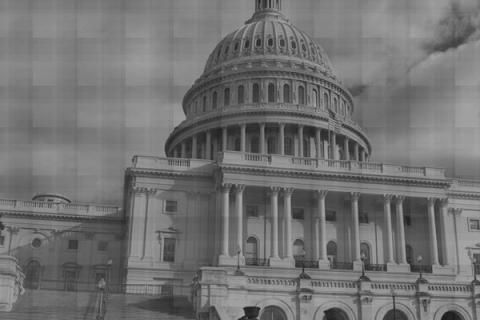In the beginning of "Pretty Woman," when the camera pans over a party, and a magician is playing slight-of-hand-tricks with some women, using witticisms aimed at the (in)famous Savings & Loans of the 1980s? If you haven't, the man is performing a coin trick, where a coin disappears in one location, and ends up in the next. Funny thing is, it could just as easily be a metaphor for the Lottery Modernization Act.
Perhaps those behind the LMA are fans of "Pretty Woman," or simply got their inspiration from a similar source. The thinking behind the LMA is this: borrow now from one fund, in order to pay off expenses from another fund, which will fund the expenses from where the new funding will be taken.
Got it?
Don't worry. However, do worry about the fact that this labyrinthine, and frankly anachronistic, proposal has been touted as a major part of balancing by the California budget, currently facing a deficit of more than $40 billion.
If passed, it is expected to provide $5 billion "of borrowing from future lottery profits to help balance the 2009-10 state budget," according to the Legislative Analyst's Office. This proposition, which will be voted on, come May 19, is described as the following by the Legislative Analyst's Office:
The measure makes major changes to the 1984 voter initiative that created the California Lottery. These changes could increase lottery ticket sales and allow the state to borrow $5 billion in the 2009-10 fiscal year from future lottery profits. In addition to borrowing this $5 billion, the state also could borrow more from lottery profits in future years. Under the measure, lottery profits now dedicated to schools and colleges would be used to pay back the borrowing. The measure would increase state payments to education from the state General Fund to make up for the loss of these lottery payments.
Ironically, the LAO has noted that borrowing on the lottery futures and owing more to the educational institutions, would, down the road, actually "make it more difficult to balance future state budgets."
Just in case you were wondering, the "borrowing" referred to in this plan is more of an IOU with the hope of future assets: according to the LAO, the borrowing inherent in this plan revolves around the selling of "future lottery profits" as an asset to investors (with interest of course), via bond protocol (which must be authorized first). The main benefit of this idea appears to be the idea of profiting right now, via the upfront funding or "securitization," as explained by the state's top analyst, and that this deal would take something of a loophole; by allowing the lottery revenues/futures and the General Fund to be kept separate, technically the taxpayer-funded General Fund will not be the bank account funding those investors intrepid enough to get in on this deal.
This odd and winding plan does appear to present a solid business opportunity for businesspeople, on the bright side, and California does desperately need any business it can get.
However, this kind of irresponsible and poorly-thought out borrowing is precisely what got us into the current financial predicament in the first place. It defies logic that in order to save money, state officials would promote a course of action that would eventually offer up even more from the state coffers. If passed, according to the LAO, not only will current funds be up for grabs, but so will "lottery profits in future years."
Basically, in the long term, yes, the schools would profit after their initial diverted payments (from the General Fund, which is about as dry as the Los Angeles River), but the taxpayers will lose. (Just a little background: the voters specifically authorized Proposition 37 one quarter-century ago, which directed that the proceeds of the state lottery would benefit state educational institutions. The amendment flies in the face of an order already in place for a reason, and that reason has absolutely zero to do with balanced budgets, or in this case, very much unbalanced budgets.)
Do the ends justify the means? Would leaders rather balance the budget now for the sake of a temporary fix, which in fact may permanently worsen the finances of the state, or would they rather find a sustainable fix? As of now, the former appears to be state lawmakers' answer to a big problem.
A snake-oil salesman and a magician can fool you, and fool you well: but once the charm of the trick has worn off, are you any better off?
